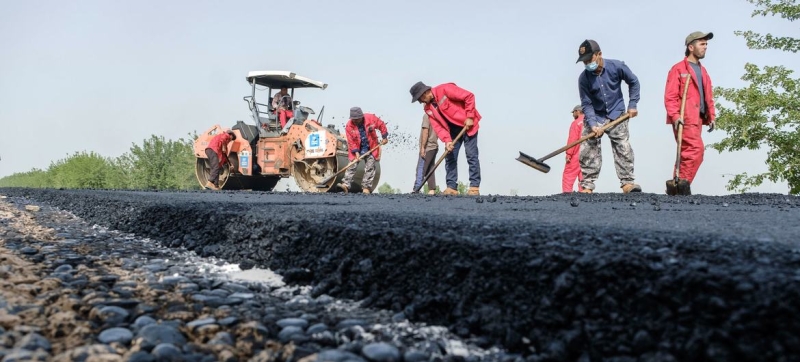
Construction of a road in Tajikistan. More than a billion people live in roadless conditions Economic Development
Fossil fuel use still dominates the transportation sector, with 95 percent of energy generated from petroleum products. Transport also accounts for nearly a quarter of global greenhouse gas emissions. This was stated by the head of the UN Department of Economic and Social Affairs, Li Junhua, at a high-level meeting on green transport in New York.
At the same time, he emphasized that in an increasingly interconnected world, with the right approach, transport and mobility can change people’s lives for the better.
“Pollutants from transport, especially in cities, directly affect people’s health. Increasing transport efficiency, reducing the use of fossil fuels and investing in public transport must be the top priorities of our actions in this area,” he said.
Last year, the UN General Assembly declared November 26th World Sustainable Transport Day, adopting the resolution proposed by Turkmenistan.
International transport corridors
Speaking at the meeting, the head of the Agency for Transport and Communications under the Cabinet of Ministers of Turkmenistan, Mammetkhan Chakyev, said that the adoption of this resolution highlights the critical importance of transport on a global scale.
Chakyev noted that over the past 10 years, 4 resolutions have been adopted regarding the role of transport and transit corridors and the need for interaction between all modes of transport to ensure stable and reliable international transport and achieve .
According to him, Turkmenistan pays special attention to participation in the creation of such international transport corridors as Lapis Lazuli, connecting Afghanistan, Turkmenistan, Azerbaijan and Georgia, as well as Uzbekistan-Turkmenistan corridors –Iran–Oman–Qatar, North-South and TRACECA (Europe-Caucasus-Asia). These projects promote international trade and economic growth.
Ensure equal access to transportation for all
General Assembly President Dennis Francis reported at the meeting that more than one billion people—about one-eighth of the population planets – do not have access to all-weather roads.
“Our top priority must be to ensure equitable access to sustainable transport, especially for countries in special situations and vulnerable communities,” he said.
Francis, in particular, drew attention to landlocked developing countries, small island states and least developed countries, many of which face problems such as outdated infrastructure, lack of technical opportunities and reduced resilience to climate change.
The Head of the General Assembly emphasized that the development of transport systems can significantly change the entire socio-economic structure of society.
“Consider, for example, how improving access to sustainable transport could significantly increase the number of children going to school, especially among the poorest and most vulnerable, including girls and students from economically disadvantaged families, from remote rural areas,” he said.
Read also:
